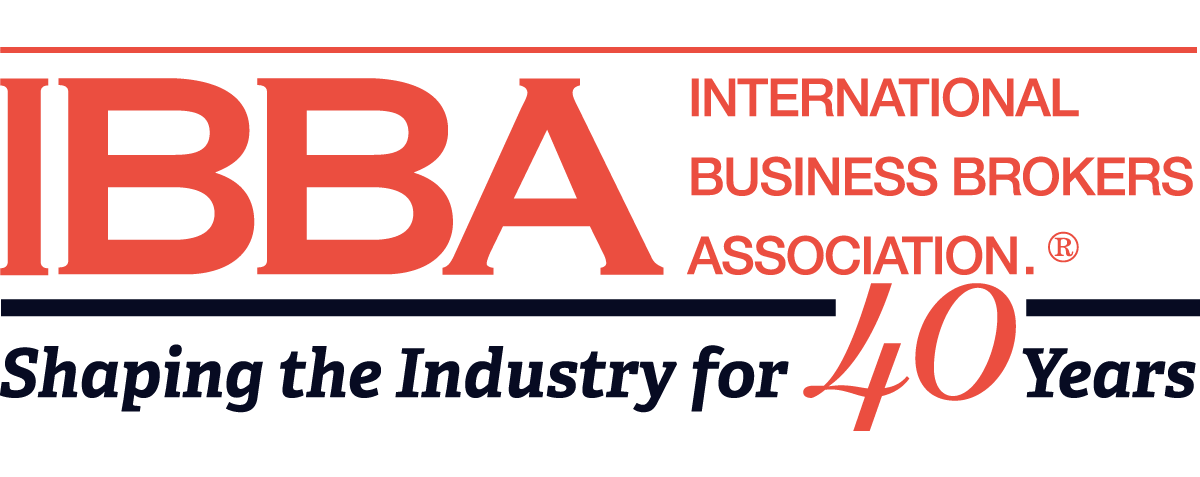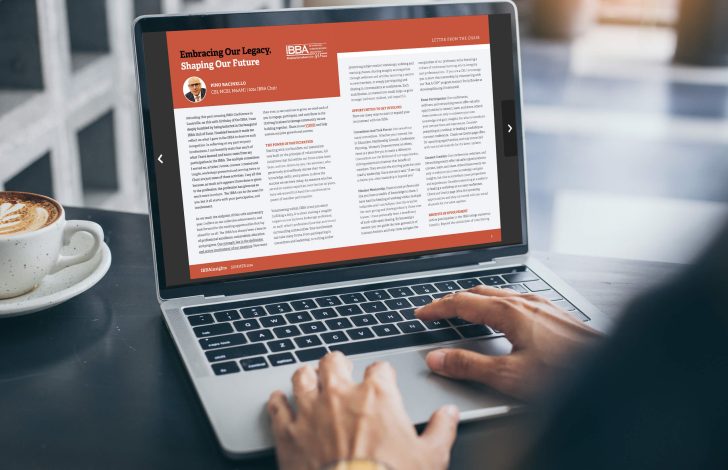IBBAinsights: Summer 2024
IN THIS ISSUE: “Embracing Our Legacy, Shaping Our Future” Letter from the 2024 IBBA Chair. Plus, Insights on Finding Success, Overcoming Blindspots, the Latest Legislative Update, and more!
Barry J. Berkowitz, PhD, CBI, M&AMI

I am pleased and honored to be the 2020 Chair of the IBBA Board of Governors. We have many exciting things planned to begin this new decade! There will be new educational courses for the beginner, intermediate and advanced business brokers. Our online course availability is continually expanding, providing flexibility to learn on your own schedule without travel expenses. We also will continue to have informative webinars, as well as our highly acclaimed podcasts. This is all in addition to the exciting IBBA 2020 Conference and Marketplace to be held in Louisville, KY, April 24-26.
Before discussing our plans for the coming year, I would like to point out that last year was an exceptional year for the IBBA. I want to personally thank Jeff Snell, our 2019 Chair, and Kylene Golubski, our Executive Director, and her team for their tremendous efforts to continue to make the IBBA the premier business broker association. We now have more than 1,400 members of which more than 500 hold the designation of Certified Business Intermediary®. I would also like to thank our many members that selflessly volunteer their time on our various committees.
Our 2020 IBBA Conference is only about two months away. The largest assembly of business brokers in the world will converge in Louisville, “Racing toward Success” (the home of the Kentucky Derby). In addition to new course offerings, the Conference will feature more than 30 new workshops and the ever-popular Mastermind Sessions, where members share their knowledge, experience and war stories. There will be great opportunities for networking with your colleagues as well as the many new members that you will meet. The Marketplace is expected to feature more than 50 Companies that can help you become better business brokers with the use of their tools and services. And, watch out for the special events and surprises! This Conference is expected to be one of the best in recent years and it is one you do not want to miss! Don’t forget to register and book your Omni Louisville Hotel room right away. I’ve attended many IBBA Conferences over the years, and I still walk away from every one with new ideas, focus and energy.
In addition to our expansive educational opportunities and conferences, business brokers get great value with IBBA membership. This year we will continue to provide free access to the Business Reference Guide online, BizMiner reports and ValuSource Market Comps database. You will also receive the recently added V-Rooms virtual data rooms. The savings from these benefits alone are much more than the cost of your IBBA membership. In addition, there are significant discounts and other benefits available to IBBA members that you will want to read about in the members area of the IBBA website. Every member should take advantage of these wonderful opportunities to enhance your tool set as well as your skill set.
As this year begins, we should give thanks to the Board members that will be retiring after their years of service. Warren Burkholder has served as 2018 Chair of the Board taking the IBBA in an upward and fantastic direction. Denise Yardy served with great skill and honor as a Director and most recently as Chair of Conference Planning. Steve Wain, a past Chair and the representative of the Past President’s Council to the Board for the last two years, has been a big part of helping develop IBBA’s growth strategy. Laura Ward, the retiring Chair of the M&A Source has provided exceptional leadership for both the IBBA and M&A Source.
We would also like to welcome our new Board members: Mike Adhikari, Michael Marks and Louis Pereira. In addition, we welcome Bob McCormick, the current Chair of the M&A Source. And we welcome a repeat performance by Lou Vecchio, a former IBBA Chair, who will serve as the Chair of the Past Presidents Council.
I look forward to seeing you in Louisville, and please contact me anytime I can be of service.
Barry J. Berkowitz, PhD | CBI, M&AMI | Berkowitz Acquisitions | [email protected]
Lou Vescio, CBI, M&AMI

In my 17 years working as a Business Broker, I have found that many individuals that enter this profession have a misunderstanding of what we really do!
A broker is a person or firm who arranges a sales transaction between a buyer and a seller for a commission when the deal is executed. The most important word in the definition above is “sales.”
We are salesmen and saleswomen, and the great brokers are great salespersons. Brokers that don’t like selling should probably find a new profession!
Additionally, we have one of the hardest sales jobs as we must make two sales in order to get paid. First, we have to sell the business owner on the fact that we can successfully sell his or her business, then we have to sell the buyer on why it should be purchased. Our job is even more complicated because we have to be knowledgeable in so many areas, such as understanding business valuations, market demand, buyer and seller psychology, how business loans work, purchase agreements, state and federal laws that apply to our profession, business benchmarking, marketing, and a myriad of other topics that may apply to a specific business we are trying to sell. But in the end, we are mainly salespeople!
So, what make a great salesperson? It is a person that likes to win! To quote a person we all know, a good salesperson can’t get “too much winning!” Salespeople love competition, which may be why so many professional athletes go into sales. A great example is Roger Staubach, a Naval Academy Graduate, Heisman Trophy recipient, NFL Hall of Famer and Superbowl winning Dallas Cowboy Quarterback. He liked winning so much that after football he built The Staubach Company, one of the largest and most successful commercial real estate firms in the country. Roger was all about winning all of the time!
An article in the December 12, 2017, issue of Forbes Magazine entitled “Why Athletes Win in Sales,” highlighted the similarities between great athletes and great salespeople. The article emphasized these traits:
Hard Work, Dedication, Focus and Flexibility – According to Frank Zaccanelli, former president of the Dallas Mavericks, “Athletes work exceptionally hard at their craft to get to the professional level — they have been focusing on one task since they were very young, and they had to have the self-discipline to put in the hard work, it makes perfect sense these skills would transition … outside of their sport.”
Love of Competition – Theo Ratliff, a longtime NBA player known for his aggressive style and shot-blocking skills, observed that “athletes are great in sales because we have been competing [for] the majority of our lives,” adding that athletes and salespeople alike love the thrill of the chase.
Self-Motivation and Goal-Orientation – Ryan Murphy, a three-time Olympic gold medalist and world-record holder in the men’s 100-meter backstroke, stated, “Athletes thrive when they have goals. Short-term or long-term, athletes are motivated by the next standard. And once we achieve that standard, we look for ways to reach the next one.”
Ability to Overcome Failure – Giorgio Tavecchio, the starting kicker for the Oakland Raiders, knows the crushing disappointment that comes with missing a field goal with the game on the line. He explained that he is able to keep things in perspective and bounce back to fight another day, adding, “By facing constant competition and occasional setbacks, athletes tend to be very resilient and determined, which allows them to not take failure as permanent or personal, but rather continuously strive for success.”
Strong Interpersonal Skills – Tavecchio also cited the strong interpersonal skills that are honed by working in a team-oriented setting as a reason why athletes win in sales. “Athletes involved in team sports develop people-oriented approaches and communication skills that translate into the ability to work as part of a team and the ability to create positive relationships.”
Great salespeople often possess supreme people skills and can adeptly apply their relationship-building and communication prowess toward successfully converting prospects into clients. Professional athletes perform at a high level while working with diverse and oftentimes divergent personalities, much in the way that top salespeople excel at selling to decision-makers with vastly differing personas.
You don’t have to be an NFL Quarterback or NBA Center or even an Olympic gold medalist swimmer to be a great business broker, but it helps to develop the same drive, competitive nature and love of winning that makes professional athletes and salespeople superstars.
While great salespeople tend to make a lot of money, money is not their motivator. As we have seen above, their motivation is competing and winning. If you are a business broker just to make money, you probably will not make much and will have a difficult time. If you are a business broker because you want to learn as much as possible about the profession, want to hone your sales skills, love the competition, and enjoy getting each win, you will love the profession and the money will follow!
I should also add that it starts with professional education. The best way to start winning is to take the IBBA professional education courses and earn the CBI designation. The CBI is the first step on the road to success, and when you reach the point where you are winning, winning and winning, and you are getting tired of too much winning, you will be very wealthy and can retire or become President!
Lou Vescio, CBI, M&AMI | Coastal Business Intermediaries & Agency Brokerage Consultants
[email protected]
John E. Collins Jr. | VP NRIA Exchange

We all know that unless we’re different from our competitor, we can never expect the fee we get to be more than what they get. We also know unless we show our potential clientele what makes us different, there is little reason for them to use us for their transaction.
Your challenge is to differentiate yourself to ensure you stand apart from your competitor and, therefore, can command the fees that you charge for your services that you provide.
Below are 7 ways you can differentiate yourself. Best of all, you can start doing every one of them right now:
In the end I have a surprise 8th way to differentiate yourself from the pack and add real value to your clients.
Know more about them.
Learn more about their business, organization, and issues than anyone else. Also learn more about their personal aspirations and challenges than anyone else. When you do, you will no longer be a commodity you will be a trusted advisor.
Be Fresh.
Be fresh. Be original. Be provocative. Don’t just repeat what everyone else is saying. You don’t have to be an Elon Musk or a Bill Gates: Take your experiences, pick a topic of interest to your clients, and boil your ideas down to four or five incisive points to share with them. Go against the grain: Is there a so called “best practice” or technology platform that’s all the rage? Tell your clients why it may not last or be right for them, if you believe that’s true. Sound fresh, not bland and boring.
Have a Unique Relationship Process.
One way of differentiating yourself is through the actual process you use to interact with your clients and manage your relationship with them. This contributes to a sense on the client’s part that “working with them is different.” This can start with the courting process, and how you handle it, the client doesn’t have to wait until they’ve contracted you to experience the difference. You can carefully manage many different aspects of your client interactions for example: Telling versus asking: The way you balance advocacy and inquiry in your conversations, and the kinds of careful, thought-provoking questions you ask.
Speed of response:
How quickly to you get back to your client with things you’ve promised? How quickly do you answer your emails and phone calls (even if to say you’re tied up with a client but will thoughtfully respond the next morning)?
Collaboration:
How you involve them in the upfront problem solving and solution development around your services and make them a part of the marketing process, in other words don’t shut them out. Education: Explain to them the various marketing techniques and industry trends that are prevalent in this fast-paced technological marketing environment that we are in now.
Develop a Personal Style.
Adopt a few, small habits and ways of communicating, and they will become a kind of signature for you. Maybe your personal style is always dressing well, no matter how casual the occasion or, always dressing casually (which happens to be my personal style these days…) Set yourself apart from the herd.
Bring Their Ideas to Life.
Innovation is a big topic, and much has been written about how to stir more innovation in large organizations. You will stand out from the crowd if you can be seen as someone who has the patience, discipline, and practical know-how to show a client how to take a concept they have but which hasn’t gotten off the ground–and make it a reality.
Show You Really Care.
Your clients are living their businesses and their organization 24/7. This is their professional lifeblood. They know you care about YOUR business–of course you do. But do you really value and care about THEIRS? Or, is it just another job for you– another day, another dollar–as the expression goes? Clients want to work with advisors and service providers who are interested in and care about what they do and about their people. How do you show you care? Take an actual interest in their business–its history, how it works, the customers they serve, the products they sell, the people they hire, and so on. Be curious. Spend time to understand their organization. Remember the business that they are entrusting to you to transfer to another individual was their creation, part of them, it most likely was not just a passive investment.
Build a Better Relationship.
This had to be on my list, right? This isn’t about just being “liked” better than the next person. A strong relationship provides many powerful benefits–here are just two: First, it enables you to accomplish point 1 on my list–to know more about your client than your competitors. Second, it creates a personal connection that strengthens a client’s loyalty to you. Remember, we don’t really root for someone until we feel some kind of personal relationship with them.
Add the secret sauce.
Finally, the eighth way to separate yourself and add real value to your clients as well as additional liquidity today. Become a referral partner with NRIA Exchange and add our exclusive Capital Gains Tax Deferral Strategy the “Deferred Liquid Sale” to your suite of client offerings today. A happy client leads to more referrals, which leads to a happier life. For more information on how to become a referral partner please contact the author above at 1-201-210-2727 ext. 120 or Email at [email protected]
John E. Collins Jr. | VP NRIA Exchange | [email protected]
Join us in Louisville, KY on April 24 & 25 for the 2020 IBBA Annual Conference! Registration is open, so be sure to register for the Conference Pass and Courses by April 10th for a great rate! You don’t want to miss these great opportunities for networkinh and learning at The Marketplace, Workshops, Masterminds, Awards Ceremony, and more!
To get started with your FREE access, login to your IBBA Member Account to get access from each benefit partner:
Bizminer
Business Reference Guide Online
ValuSource
V-Rooms
IN THIS ISSUE: “Embracing Our Legacy, Shaping Our Future” Letter from the 2024 IBBA Chair. Plus, Insights on Finding Success, Overcoming Blindspots, the Latest Legislative Update, and more!
Independence, OH May 21st, 2024 – IBBA, the world’s largest professional trade association for Business Brokers, today announced and recognized the recipients of its top performance awards at the 2024 Annual Conference in Louisville, Kentucky. “The cumulative transaction value of this year’s submitted deals was over $2 billion, which is an astounding number,” stated Kylene […]
Independence, OH – April 11, 2024 – The International Business Brokers Association® (IBBA) is pleased to announce the inaugural inductees to the IBBA Hall of Fame: Jim Afinowich | Lifetime Master CBI, M&AMI, Fellow of the IBBA Pino Bacinello | Lifetime Master CBI, M&AMI, CM&AP, Fellow of the IBBA Barry Berkowitz | Lifetime Master CBI, M&AMI, […]
Newsletter Sign UpGet the latest insights on buying and selling small businesses direct to your inbox.




